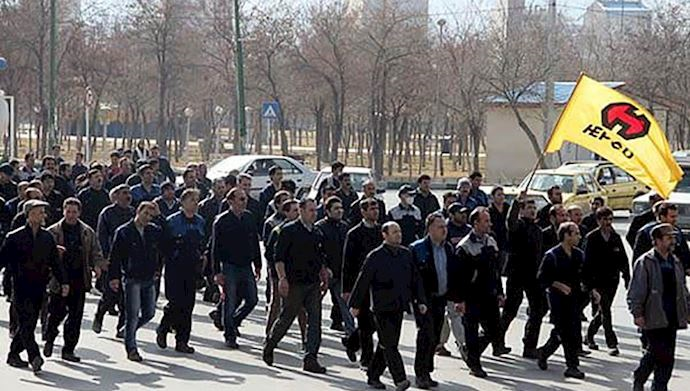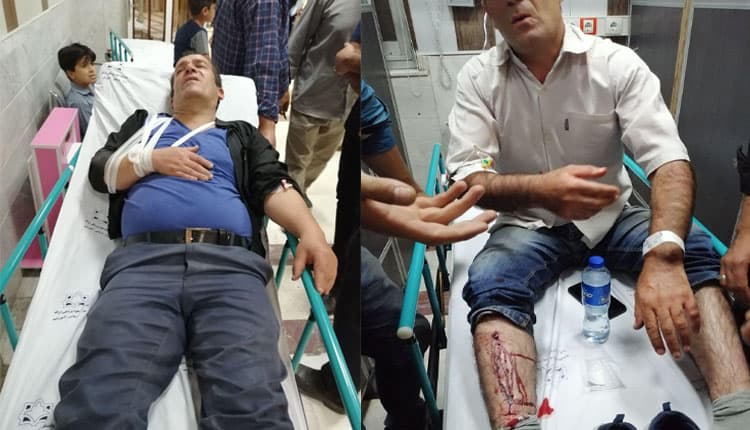Amid calls for de-escalation, Iran is responsible for the attacks on vital Saudi Arabian oil installations over the weekend that cut the global oil supplies in half.
During nationally televised remarks on Tuesday, Iran’s Supreme Leader Ali Khamenei said: “Iran will never hold talks with America”.
Despite enduring painful economic restrictions, in his speech on May 14, 2019, Khamenei emphasizes the need for a ‘prudent resistance’ policy, to include continuing to develop Iran’s missile program, maintaining the regime’s support of terrorism abroad and blocking the protests inside the country.
In his eyes, ‘resistance’ is the key to the Islamic Republic’s forty years of survival. However, for the people of Iran, Khamenei’s ‘prudent resistance’ translates into brutal suppression, rampant inflation, rising unemployment and a ruthless crackdown on all protests against corruption and hardship, by students, workers, teachers, truck drivers, nurses and many other strata of society.
The most recent evidence of Khamenei’s approach was his decision to appoint 58-year-old Ebrahim Raisi, a controversial hardline cleric accused of gross human rights violations, as head of the country’s influential Judiciary.
Raisi is a senior cleric and longtime prosecutor. Human Rights Watch (HRW) and the U.S. State Department blasted his appointment at the helm of the Judiciary, saying that he was involved in the “mass execution” of political prisoners in the 1980s.
Ebrahim Raisi claimed that he wanted the Iranian people to taste “the sweet flavor of justice” by reforming the judicial system to bring more justice and fairness. On the contrary, six months after being appointed to his new position, the sentences given to political prisoners indicate that pressure on civil rights activists and opposition groups in Iran has increased. During the first six months of Raisi’s tenure, political activists were sentenced to 1,027 years in prison and 1428 lashes which is a 119% increase compared to a similar time period under his predecessor. Moreover, new waves of widespread pressure and suppressive measures have intensified against civil society and critics in Iran.
According to reports, Gholamreza Ziaei, the new chief of the Iranian regime’s notorious Evin prison in Tehran, has been mounting repression against prisoners. Gholamreza Ziaei, designated by the US Department of the Treasury’s Office of Foreign Assets Control (OFAC) in connection with serious human rights abuses in Iran, is responsible for ordering, controlling, or otherwise directing, the continuing commission of serious human rights abuses against persons in Iran or Iranian citizens or residents.
However, Iran’s protest movements show little sign of declining. As security forces step up their crackdown, dissidents have continued to stage demonstrations. Rather than quelling dissent, experts say, Iran’s repression may have emboldened activists; protesters feel they have nothing to lose.
Workers of the HEPCO company in the city of Arak, central Iran held yet another protest rally on Sunday, September 15,

demanding answers on their status as company shareholders. The protesting workers were holding a banner reading, “We HEPCO workers are making it crystal clear: Our main demand is the clarification of the company shareholding and ownership status following five years of being left in limbo. We will no longer accept merely a new company director.”
However the regime’s special guard forces and police attacked Hepco workers brutally.

In another circumstance according to a statement by the National Council for Resistance in Iran (NCRI), in the early hours of Monday, September 16, 2019, defiant youths torched huge billboards of the Iranian regime’s Supreme Leader Ali Khamenei and the Islamic Revolutionary Guard Corps (IRGC) and Bassij bases in cities of Karaj (west of the capital), Orumiyeh, Khoy and Makoo, (northwest) and Roudsar and Rezvanshahr (north).

Bassij Base-Rezvanshahr
Torching the mullahs’ regime’s symbols and writing anti-government slogans on the walls as well as putting up posters of the People’s Mojahedin Organization of Iran (PMOI) founders and Resistance’s leaders in the past three weeks in 75 cities across Iran by the defiant youths

Oroumieh – west of Iran
According to reports gathered by Iran Human Rights Monitor, Iran sentenced more than 31 activists, workers, and journalists to lashes and prison in August for participating in protests.
The Paris-based Reporters Without Borders (RSF) expressed alarm that a new wave of arrests and interrogations of female journalists had started in Iran since the beginning of August.

In a report to the General Assembly, the UN’s special rapporteur on human rights in Iran criticized the regime for its treatment of human rights defenders, members of minority communities, lawyers, journalists, labor and trade union activists and women protesting a law requiring them to wear veils known as a hijab.
In another circumstance At least 30 Kurds, three Arabs, and a Baluch man were arrested by the state security forces.
At least six Kurdish porters were shot and killed by Iran’s IRGC forces while 10 others were wounded.

Two Baluch men were also shot dead by IRGC forces under the pretext of smuggling.This abuse is on-going and relentless and must be brought to an end for true justice and fairness to prevail in Iran.


1 comment
We need to help the Iranian people fight the good fight, against their oppressive and ruling dictatorial theocracy.